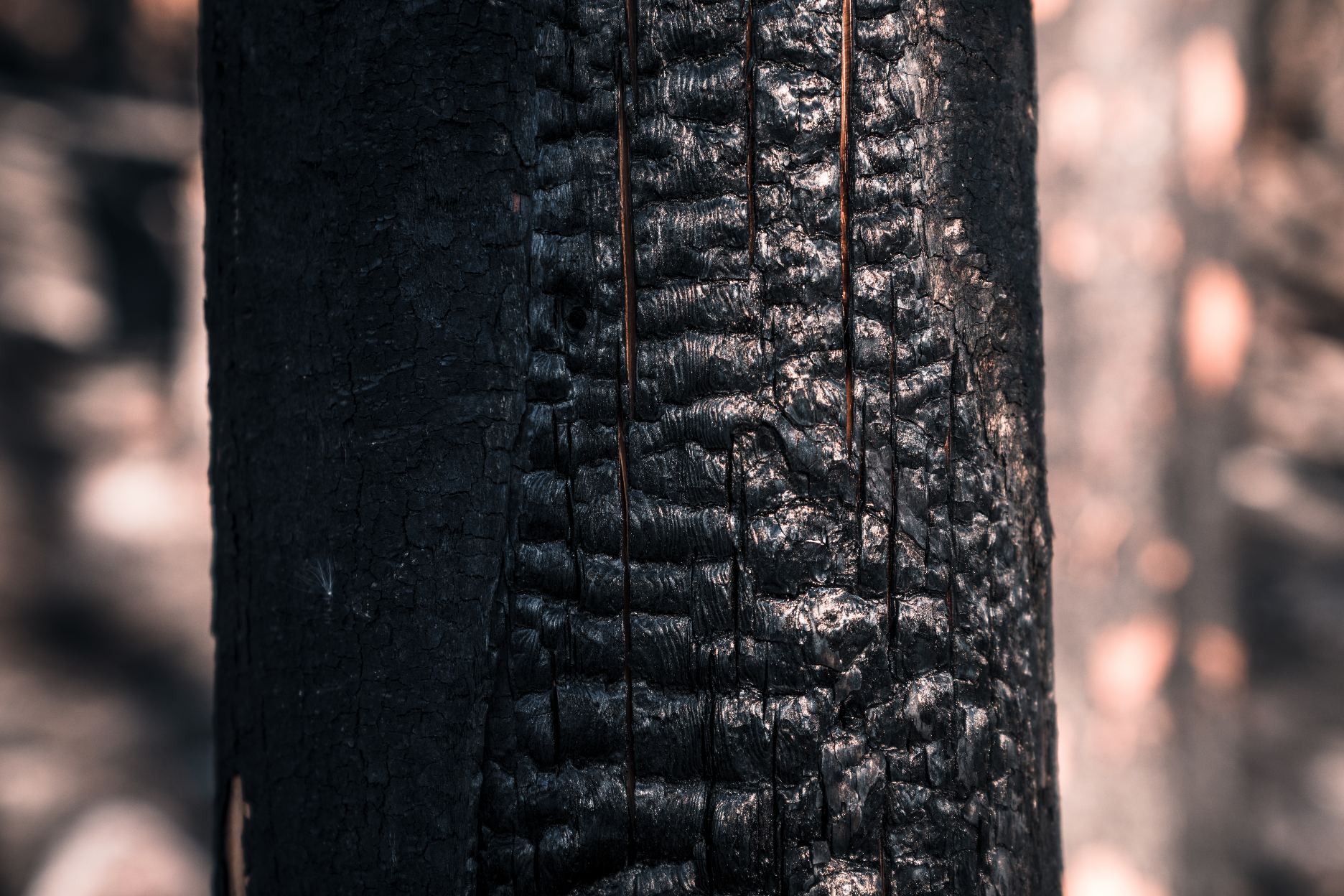A LETTER FROM A PYROPHYTE
Words by Chris Nelson | Photography by Steve Shannon
The faint smell of smoke woke me. For a moment I thought I had dreamt it, because as the wind blew through my dew-soaked branches, there were only hints of rose and sagebrush, both faded in the overpowering stench of sulfur. The delight drained from me until I smelled the smoke again, and then distant in the northwest I saw it: a white wisp of burn floating through the summer sunrise, blurred behind the mist of the prismatic hot spring.
Typically, fires like this burn once every few centuries, so I felt blessed to see it in my lifetime. I watched with joy as the flames drew nearer, engulfing hundreds of thousands of acres of lodgepole pines, day after day, month after month, and I imagined with glee the moment when the searing heat would become so strong that the pitch resin spreading over my serotinous skin would begin to melt. Slowly I’d feel the cones on my branches spreading wider and wider apart before breaking open, and in an instant I’d be resurrected in a shower of small, winged seeds that would float down through the smoky air.
My offspring would bury themselves in the ground as the fires raged above, destroying me and the community of trees I once knew – but there is no pain in this, because as foundations of the forest we know it’s just part of death’s carefully choreographed dance with life. When the thin-barked trees turn black and crumble, they are swallowed by the forest floor and fed back into the carbon-rich soil, which is then bathed in unbroken sunlight, and soon my seedlings would sprout from the bed to restart the cycle of growth. Without our sacrifice, the forest cannot be renewed, as nature intended it to be.
Yellowstone Fires, 1988 | Photo by Mike Lewelling, National Park Service
Every night as the flames spread, I dreamt about what the ground might feel like, or how tall my offspring could eventually grow, but one morning I awoke to the strange sound of giant silver birds soaring just above the tree crowns, spraying white dust in every direction. They came in flocks and slowly forced the blaze to retreat, but thankfully the swirling inferno refused to surrender. I watched in disgust as the birds flew through the red sky, and I wondered what motivation they had to try and control our natural cycle. I held onto hope, but only until snowflakes began to fall from the firmament, and then the silver birds disappeared as the fires finally died, and with them died my budding dreams.
It’s been more than three decades since those flames went out, and I still wait and wonder if my time will ever come. In those first few years after the fires, I envied the young pines growing in the charred remains of their parent plants and prayed for a lightning strike to ignite the decay at their roots so that my young could have their opportunity to branch out. I fought off poisonous thoughts that by the time the fires returned, my seeds would already have soured, or that the fires wouldn’t return at all, and my existence would be for nothing.
Now and then I’d catch a whiff of smoke and be momentarily overwhelmed with anticipation, but to my dismay I saw nothing come through the forest veil. Until five years ago, when a blaze erupted and raged, with flames once again kissing the clouds. Unfortunately, though, any hope I had was again drenched by the giant silver birds and their white dust. I damned their invasive hubris and inability to understand this natural process of death and rebirth.
Eventually my thoughts shifted when for the first time I questioned the consequences of my pyro prayers. Looking down at the young lodgepoles around me, I realized they hadn’t matured enough to grow full seed banks, so if they burned, their life cycle would end in vain and ash. The intentions of an outside encroachment no longer mattered to me once I realized the dangers that my forest now faced.
Yellowstone Fires, 1988 | Photo by Jeff Henry, Yellowstone Digital Slide Archives
Fires have become far more frequent, and their artificial suppression happens quicker than ever, and as the farthest edges of the forest are pushed inward by a hungrily ambitious species, the underbrush tinder piles higher. It seems the intent of nature no longer matters, and when the fire I once admired returns, it will likely be sparked by those creatures, and I will feel no delight. The blaze will be larger, move faster, and burn hotter than anything before it, and it will grow so intense that nothing will be spared, as the resin on my skin boils and my few viable seeds wither to dust.
There is peace in accepting one’s fate. I am certain now that I will never be born again, and I no longer dream about how tall the next generation might grow. I recognize that there is no stopping the outside influences who come to my home to snuff out nature’s intentions. I used to pray for fire, but now my only prayers are for the fledgling pines, and that those hungry creatures will not spark the next blaze. I do still wonder what the ground feels like, and hope that one day soon I’ll know.

